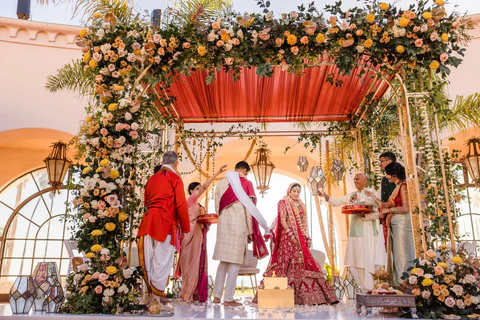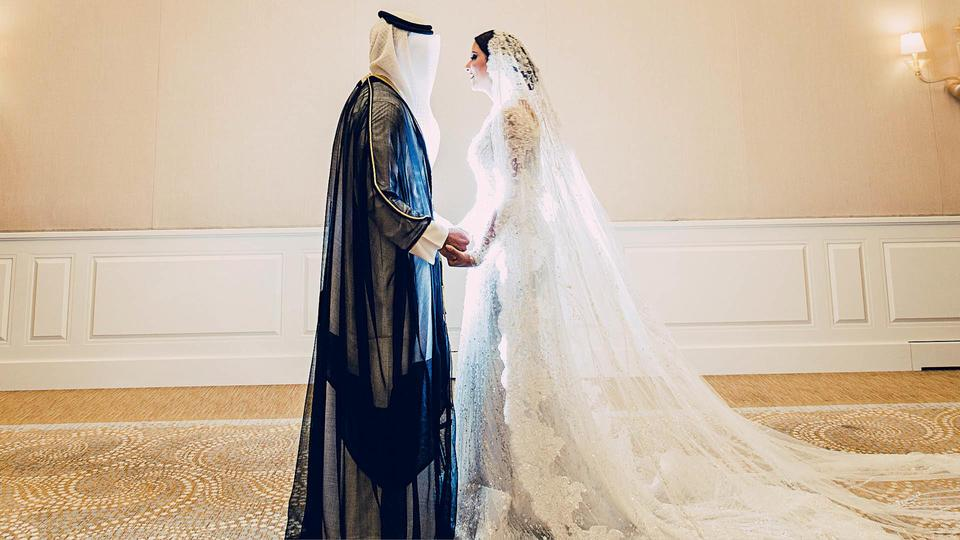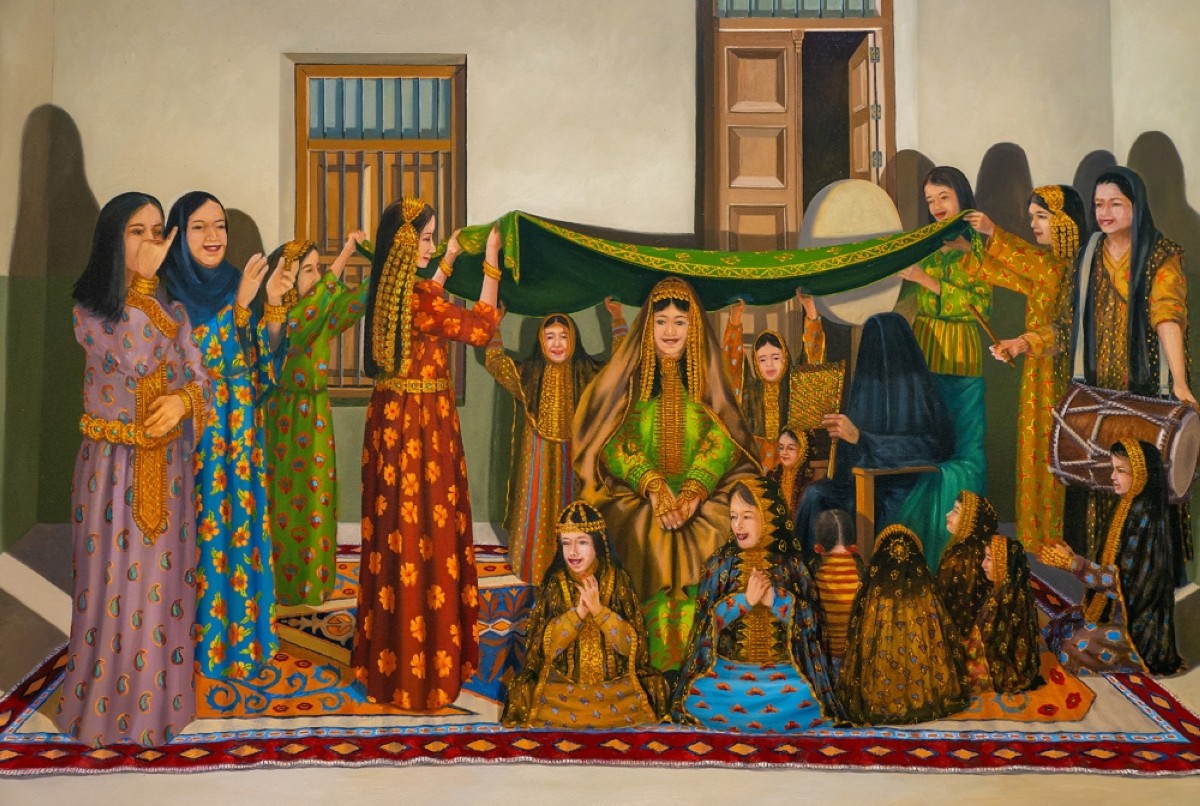Traditional Kuwaiti Wedding Rituals: A Joyful Celebration of Love and Culture,Weddings in Kuwait are more than just a union between two individuals they are a vibrant celebration of family, culture, and deep-rooted traditions passed down through generations. These ceremonies symbolize unity, respect, and joy, combining Islamic values with local Kuwaiti customs that make each wedding a unique cultural experience. From the pre-wedding rituals to the grand celebrations that follow, every detail reflects Kuwait’s warmth, hospitality, and devotion to heritage.
The Essence of Kuwaiti Weddings
A Kuwaiti wedding is not merely a single event it is a series of beautifully planned ceremonies that can last for days. These events bring together families, relatives, and friends in a joyous gathering filled with music, laughter, and cultural expression. The traditional rituals may vary slightly among families, but they all share one goal: to honor love and unity within the framework of Kuwaiti and Islamic traditions.
The essence of Kuwaiti weddings lies in the blending of modern and traditional elements. While young couples may prefer more contemporary touches like designer dresses or modern venues, the heart of the celebration always remains true to its roots. Kuwaiti weddings are, in many ways, a reflection of the country itself a proud nation that embraces progress while cherishing its cultural identity.
The Proposal and Engagement
The journey toward marriage in Kuwait often begins with a traditional proposal known as the “Al Khitbah.” In this step, the groom’s family visits the bride’s home to formally ask for her hand in marriage. The families exchange greetings and engage in discussions about the couple’s future. The bride’s consent is of utmost importance, and once she agrees, both families celebrate the engagement with sweets, coffee, and gifts.
The engagement period, or “Milcha,” is an essential stage that allows the couple to get to know each other better within Islamic guidelines. During this time, small gatherings and celebrations take place, and the bride-to-be may receive jewelry and gifts from the groom’s family. It is a period filled with anticipation, excitement, and blessings from elders, who often share words of wisdom about marriage and family life.
The Henna Night – A Symbol of Joy and Blessings
One of the most beloved pre-wedding traditions in Kuwait is the “Henna Night,” known locally as “Laylat Al Henna.” This vibrant event is typically held a few days before the wedding and is attended mostly by women from both families. The atmosphere is filled with laughter, music, and dance, as the bride’s hands and feet are adorned with intricate henna designs that symbolize beauty, joy, and good fortune.
The henna ceremony carries deep cultural meaning. Traditionally, it is seen as a way to bless the bride and protect her from any negative energy as she embarks on a new chapter of life. The event also serves as a chance for the women in the family to bond and celebrate their shared heritage. The bride often wears a traditional Kuwaiti dress known as the “Thobe Al Nashal,” an elegant garment rich with embroidery and shimmering gold threads.

The Wedding Preparations
In Kuwait, wedding preparations begin long before the actual ceremony. Families put great effort into planning every aspect of the event—from selecting the venue and catering to choosing the perfect attire for the bride and groom. Traditionally, Kuwaiti families host the celebrations in grand tents or luxurious hotels, depending on personal preference and social status.
The bride’s preparation is especially elaborate. She spends days selecting her gowns, jewelry, and accessories. It is common for Kuwaiti brides to have multiple dresses for different parts of the wedding, ranging from traditional outfits to glamorous modern gowns. Beauty rituals also play a big role, as brides visit spas, hair salons, and makeup artists to ensure they look their best for the big day.
For the groom, preparations are equally important though less elaborate. He often wears a traditional Kuwaiti robe called a “Dishdasha,” paired with a “Bisht,” a cloak worn over it, and the iconic head covering known as the “Ghutra” or “Egal.” The attire represents pride, elegance, and cultural identity, emphasizing the groom’s role as a dignified and responsible husband-to-be.
The Wedding Ceremony
The main wedding event in Kuwait is often separated by gender, with one celebration for men and another for women. This tradition allows both sides to celebrate freely and joyfully. The women’s ceremony is usually more colorful and lively, featuring music, dance, and fashion shows. The bride makes a grand entrance, often accompanied by special songs and lights that highlight her beauty and elegance.
On the men’s side, the celebration is more formal. Guests enjoy traditional music, poetry recitations, and the serving of Arabic coffee and sweets. The groom’s friends and relatives congratulate him, and the air is filled with an atmosphere of pride and happiness. In modern times, however, mixed weddings have also become more common among younger generations who prefer to share the moment with all their loved ones together.
A key highlight of the wedding is the signing of the marriage contract, or “Nikah,” which is conducted by a religious official. The contract signifies the official union of the couple under Islamic law. Both families gather to witness the moment, and prayers are recited for the couple’s happiness, prosperity, and faithfulness.
Music, Dance, and Celebration
Music and dance are at the heart of Kuwaiti weddings. Traditional Kuwaiti songs played on instruments like the oud and tambour add rhythm to the celebration. The “Ardha,” a traditional Kuwaiti sword dance, is a common performance at men’s weddings and symbolizes bravery, pride, and unity.
For women, music takes a more melodic form, with live performances from female singers and drummers who encourage everyone to join the dance floor. The bride’s arrival is often accompanied by special songs that praise her beauty and the family’s joy. These cultural elements bring warmth and life to the celebration, reminding everyone of the community’s shared traditions and values.
The Wedding Feast – A Taste of Kuwaiti Hospitality
No Kuwaiti wedding is complete without a grand feast. Food is an essential part of the celebration, reflecting the country’s famous hospitality and generosity. The wedding meal, or “Waleema,” is often an extravagant spread of traditional Kuwaiti dishes.
Guests are treated to delicacies like “Machboos,” a fragrant rice dish cooked with lamb or chicken, flavored with spices and saffron. “Harees,” made from crushed wheat and meat, and “Jareesh,” a savory porridge, are also popular dishes served during weddings. Alongside these, a variety of sweets, dates, and traditional beverages are offered, ensuring that every guest leaves with a satisfied heart and stomach.
The Waleema represents abundance, unity, and gratitude. It is a moment when families and friends come together to share not only food but also love and blessings for the newlyweds. Every bite carries a sense of community, symbolizing that marriage is not just the joining of two individuals, but of two families and hearts.

Post-Wedding Customs
After the wedding, Kuwaiti traditions continue with smaller gatherings and visits known as “Sabahiyya.” On the morning after the wedding, the bride and groom are celebrated once more as relatives come to offer gifts and congratulations. The bride’s new home is often beautifully decorated to welcome her, and family members visit to share in her joy and offer words of encouragement.
The couple may also host an additional reception or dinner to thank everyone who attended the wedding. This gesture of gratitude highlights the importance of relationships and respect in Kuwaiti culture. In many ways, the post-wedding events serve as a gentle transition into the couple’s new life together, reminding them that they are surrounded by love and support.
The Role of Family and Community
Family is at the heart of every Kuwaiti wedding. From the initial proposal to the final celebrations, every stage involves the guidance and blessing of family elders. Parents, siblings, and relatives all play significant roles in organizing and supporting the wedding events.
Community ties are also strong in Kuwaiti society, and weddings often extend beyond immediate family to include neighbors, colleagues, and friends. Such inclusivity fosters a sense of unity and shared joy. Each wedding becomes a reflection of Kuwait’s social fabric tight-knit, generous, and filled with respect for cultural heritage.
Modern Influence on Traditional Weddings
While Kuwaiti weddings remain deeply rooted in tradition, modern trends have influenced their style and presentation. Today, many young couples incorporate international elements into their ceremonies, such as themed decorations, destination weddings, and photography sessions. Technology has also become a part of the experience, with live streaming for guests who cannot attend and social media used to share memories of the big day.
Despite these changes, most Kuwaitis still ensure that their weddings retain a strong connection to cultural customs. Traditional attire, music, and rituals continue to play a central role, blending seamlessly with modern innovations. This harmony between past and present highlights Kuwait’s dynamic culture modern yet deeply respectful of its roots.
The Spiritual Meaning of Marriage
Beyond the glamour and festivity, marriage in Kuwaiti culture holds a profound spiritual significance. It is viewed as a sacred bond, built on mutual respect, faith, and love. Couples are encouraged to uphold Islamic values in their relationship and to nurture their families with compassion and understanding.
Elders often remind newlyweds that marriage is not only about celebration but also about patience, partnership, and faith. The prayers recited during the Nikah ceremony symbolize these values, asking Allah to bless the couple with harmony and happiness throughout their life together.
Preserving Kuwait’s Wedding Heritage
As Kuwait continues to modernize, the preservation of traditional wedding customs remains an important cultural mission. These rituals represent the nation’s history, identity, and moral values. Efforts are being made by cultural organizations and families to ensure that younger generations understand and appreciate these traditions.
By holding onto these rituals, Kuwaitis maintain a sense of belonging and pride in their heritage. Weddings, therefore, are not just personal celebrations they are cultural landmarks that connect the past with the present and ensure that Kuwait’s spirit continues to shine through generations.
Conclusion
Exploring traditional wedding rituals in Kuwait reveals more than just a sequence of ceremonies it unveils a story of love, family, faith, and cultural pride. Each step, from the proposal to the post-wedding gatherings, embodies the essence of Kuwaiti hospitality and the values that strengthen its society.
In a world that is constantly changing, Kuwait’s wedding traditions stand as a reminder of the beauty of cultural continuity. They reflect a nation that celebrates love not only through grand feasts and music but also through shared values, respect, and togetherness. For those who witness or experience a Kuwaiti wedding, it is not just a celebration of two souls it is a heartwarming reflection of Kuwait’s enduring spirit and joyful heritage.
Do follow Gulf Magazine on Instagram.
Also Read – Reviving Kuwait’s Soul: Artists Blending Heritage with Modern Art



